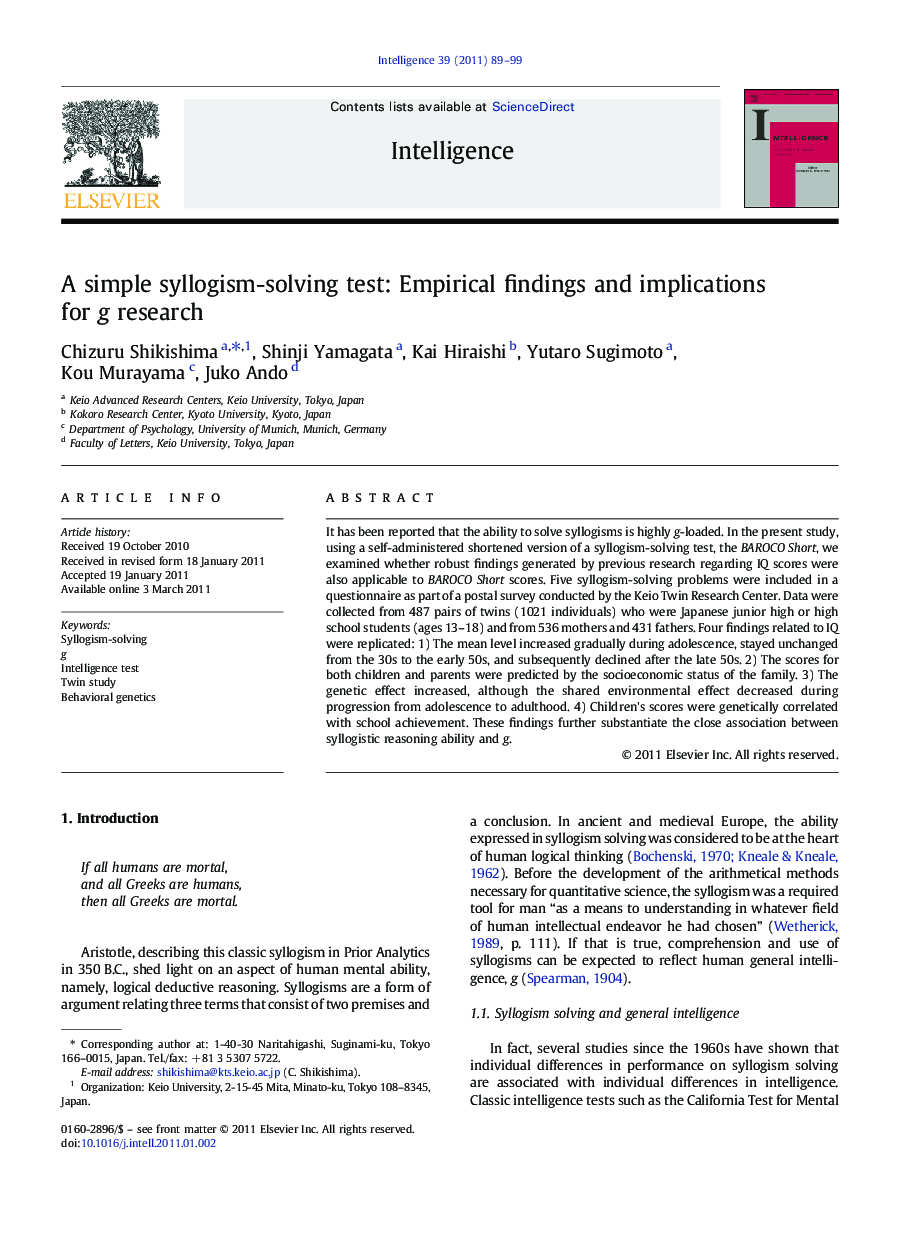| Article ID | Journal | Published Year | Pages | File Type |
|---|---|---|---|---|
| 929205 | Intelligence | 2011 | 11 Pages |
It has been reported that the ability to solve syllogisms is highly g-loaded. In the present study, using a self-administered shortened version of a syllogism-solving test, the BAROCO Short, we examined whether robust findings generated by previous research regarding IQ scores were also applicable to BAROCO Short scores. Five syllogism-solving problems were included in a questionnaire as part of a postal survey conducted by the Keio Twin Research Center. Data were collected from 487 pairs of twins (1021 individuals) who were Japanese junior high or high school students (ages 13–18) and from 536 mothers and 431 fathers. Four findings related to IQ were replicated: 1) The mean level increased gradually during adolescence, stayed unchanged from the 30s to the early 50s, and subsequently declined after the late 50s. 2) The scores for both children and parents were predicted by the socioeconomic status of the family. 3) The genetic effect increased, although the shared environmental effect decreased during progression from adolescence to adulthood. 4) Children's scores were genetically correlated with school achievement. These findings further substantiate the close association between syllogistic reasoning ability and g.
Research Highlights► Performance on five syllogism-solving problems included in a simple self-administered questionnaire using postal survey replicates typical characteristics for g. ► The mean level and genetic and environmental structures for syllogism solving change systematically according to age. ► Scores for syllogism solving are predicted by SES of the family. ► Scores for syllogism solving are genetically correlated with school achievements.
